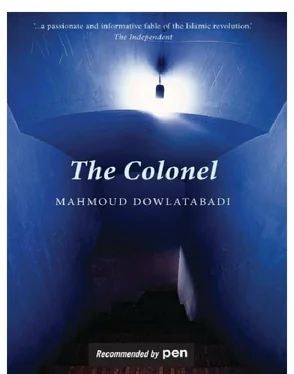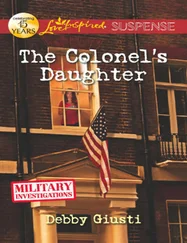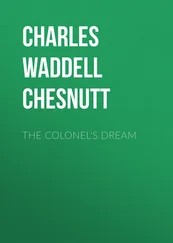“Wasn’t she too young to be hanged?”
the colonel had no reply to that. He took his watch out of his waistcoat pocket and studied it to work out how long it was left before the dawn call to prayer. Putting it back in his pocket, he felt for the knot holding the shroud together. As if giving his son an ultimatum, he pronounced his last word on the subject:
“I’m going to the cemetery. I’m going there to bury Parvaneh. Are you coming with me?”
Amir, still staring blankly in front of him, drained of colour and petrified, suddenly began to shake. His whole body shook stiffly, as if he was having a bout of malaria. His teeth started to chatter and his hands began to punch one against the other, as if some outside force had hold over them, as he tried to grasp the blanket and wrap it round his scrawny body and lose himself in its folds. To the colonel, this was not a cold fever, but fear — dread and horror — that sought refuge in the old blanket that protected him from his nightmares. Amir’s whole face was now hidden and panic had turned him into a shaking wreck. the colonel could just hear his voice, muffled by the damp warp and weft of the old blanket:
“No, I’m not coming. I’m nobody’s brother. I’m not anybody. I’m nobody. I don’t even exist…”
the colonel was already on his way down the stairs when he wondered why he hadn’t warned Amir about the ‘Immortal Prophet Khezr Javid.’ He should have put his foot down. He would have been perfectly within his rights; it was still his home, after all, and he had a duty to act against suspicious types who drifted in and out of his house. But what Amir had said was ambiguous. What did he mean by saying that he hadn’t got a brother? Was it just him being mad, or did he mean something else? Was he trying to get at me? Was he trying to make me feel even more wretched than I am? What was he driving at? What did he really mean? Was he aware of the venom behind his words? Was he saying that I’m not… not the father of all my children? Has my son become so heartless and cruel as to bring up my wife’s whoring — his own mother’s whoring? All right, so I killed her, I killed Forouz; right in front of him, I killed my wife. So everything needs to be scrubbed and purified now, does it? Why, why? I’ve absolutely no doubt in my own mind that none of my children are bastards, no doubt at all. If Forouz had wanted to break the rules, she’d never have agreed to those two operations. And in any event, I’d have noticed. Gut feeling and animal instinct don’t lie. No, I loved you all and I love you still. Why else do you think I regret not warning you about Khezr Javid, or why would I be feeling so much love for my little daughter Parvaneh? So much love that I feel I shall die if I return to the cemetery and find that they have already buried her without my seeing her for one last time? Come on now, don’t be so foul to me!

As the colonel made his way along the muddy streets in the rain, holding the pick and shovel firmly on his scrawny shoulder, his thoughts were never far from Khezr Javid. At times he even felt that ‘the immortal one’ was following him in the darkness and mocking him. 17He could picture him standing before him right now: with the collar of his raincoat turned up and the brim of his hat pulled down over his forehead, his coat belt tied at the waist and his shoes shining, as always, in spite of the rain and mud. For Khezr Javid moved in mysterious ways and appeared to walk on air without his devilish shoes ever getting wet, no matter how hard it rained. On the many occasions that the colonel had seen him come to the house he never seemed to be the least bit wet. Incredible! Even on that fateful evening — was that the last time he had seen him? — it had been raining.
the colonel had been sitting on his bentwood chair by the window, looking out and listening to the rain falling into the pool in the courtyard. He noticed that the black cat that usually sat on the edge of the pond was not there. It must have hidden itself away in a corner, out of the wet. This time, Parvaneh opened the door to Khezr Javid. She had rushed out into the courtyard and lifted her face to the rain as it ran down in heavy drops over her cheeks and forehead, enjoying the game as if she were a small girl. As he looked on, the colonel felt embraced by the warm feeling of sharing in her simple pleasure.
Khezr Javid knocked on the gate. Parvaneh opened it and, without looking at him, hid herself behind the gate as he swept in. As usual, he made straight for the stairs to the basement. the colonel felt his daughter looking at him and noticed that she had by now shut the gate and was running her palms softly down over her face and down her chin to her neck and throat. The last that the colonel remembered seeing of Khezr Javid that night was of his hands shoved deep in the pockets of his parka, and of his epaulettes and the diamond shaped crease in the top of his woollen cap disappearing down the stairs.
Parvaneh had come into her father’s room and was drying her face and hair with a towel that she had brought in with her. the colonel stubbed out his cigarette in the ashtray without looking at his daughter. She stood by the stove and lifted the lid off the teapot to smell the tea, to make sure that it had not stewed. She checked the kettle and poured two glasses, one for her father and one for herself, put them on the table and sat down.
“Papa, would you like some tea?”
Why didn’t I have some? Life for an old man is made up of small kindnesses like this. Didn’t she know that? … but of course she did.
“I’ll put some more paraffin in the stove for you presently.”
I knew it. Parvaneh did this for me every night. The kindness in my daughter’s voice breathed new life into that simple act of topping up the paraffin stove. I wanted to show willing, so I said if she was busy I could do it myself, but she ignored me and asked if she could take some tea down to her brother and his visitor and give Amir his night-time pills before she got her hands all paraffiny.
“Should I give them some tea?”
“Yes… do you know how many pills your brother is meant to take, and when?”
She knew. She put the teapot, sugar bowl and two glasses on a tray and, before leaving the room, pulled her scarf over her head and put a towel over the teapot to keep it warm. When she got to the basement, Khezr Javid was just taking off his parka and hanging it on a clothes hook. Parvaneh could see his shoulder holster, which more than satisfied her curiosity. Khezr was evidently taken by surprise for, as the door opened and he saw the girl putting the tray down on the stool, he started, then quickly composed himself and shot a sideways glance at Parvaneh. She could see from her brother’s face that she should not have come in without asking. Mortified, she had to get away from her brother and his strange visitor as fast as she could. She fled up the stairs but, before she reached the yard, she heard Khezr Javid’s voice, as if for the first time:
“She’s still very young and weak. You really shouldn’t have got her involved in the revolution and all this activism. It’s dangerous for her, very dangerous.”
Parvaneh realised she was standing on one leg. Khezr’s voice had made her stop stock still, balancing herself with her other foot on the top step. She only noticed it when Khezr stopped speaking. She had been holding her breath while they had been talking about her and, when she realised that Khezr had finished, she breathed again. Putting her weight on both feet she stood, listening, with her ear to the wall, trying to make out her brother’s reply to Khezr over the sound of the rain. Amir said something along the lines that Parvaneh just had a youthful zeal for revolution, and that she had only been selling a few newspapers on the street. Besides, no-one in particular had forced her to get involved. His voice was pleading, as if he was begging Khezr to cut him some slack and not be too harsh on his little sister:
Читать дальше













